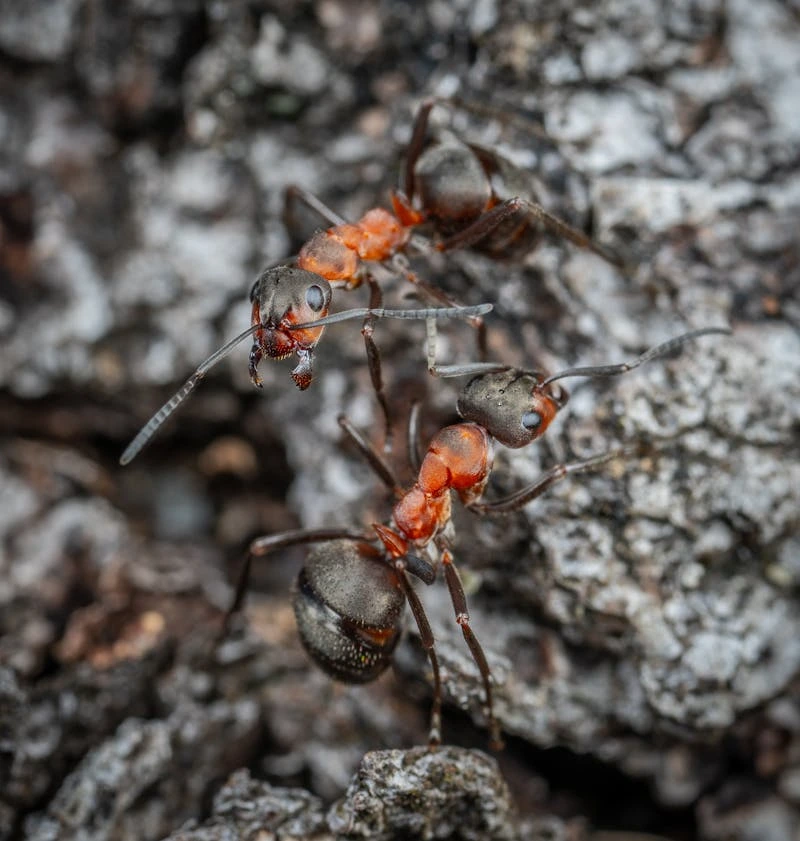Ant Pest Control
Common Ant Species in Ipswich Homes and Gardens
Ipswich is home to several ant species that vary in behaviour, nesting habits, and the level of risk they pose to people and property. Identifying the species correctly is the first step toward effective treatment. Some of the most common ants found in the region include:
Argentine Ants
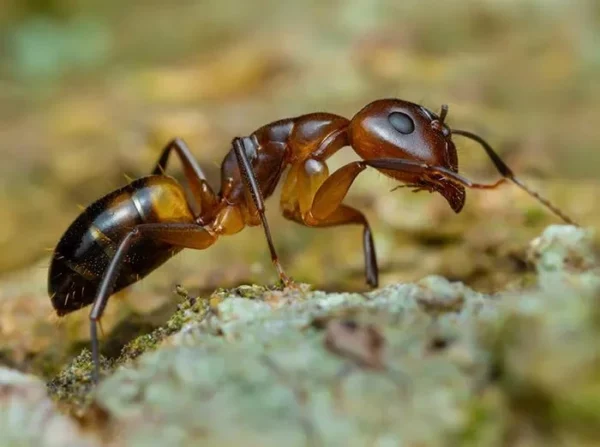
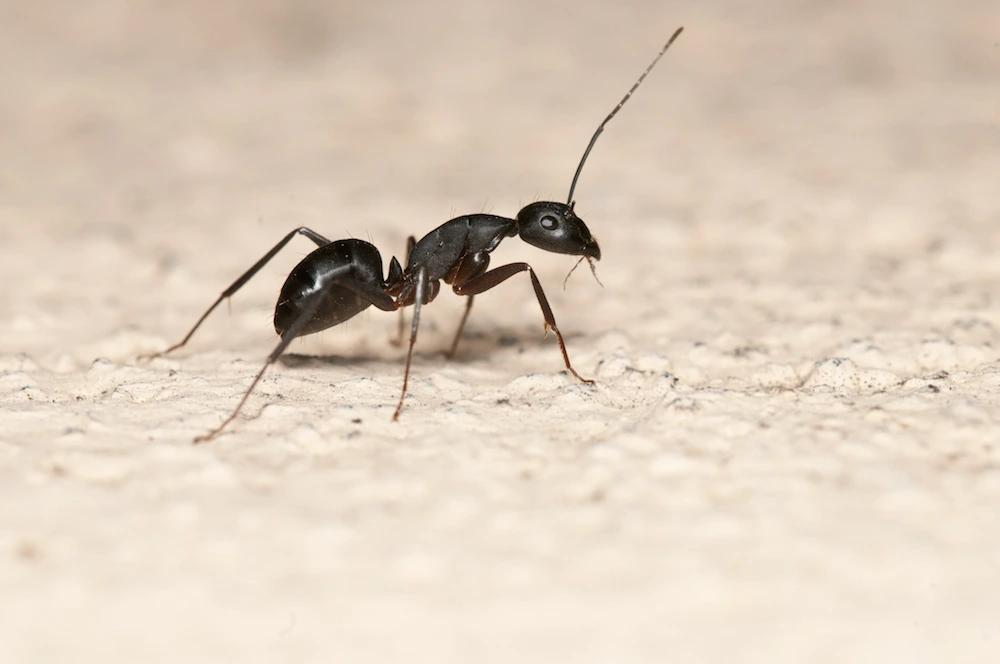
Carpenter Ants
Coastal Brown Ants
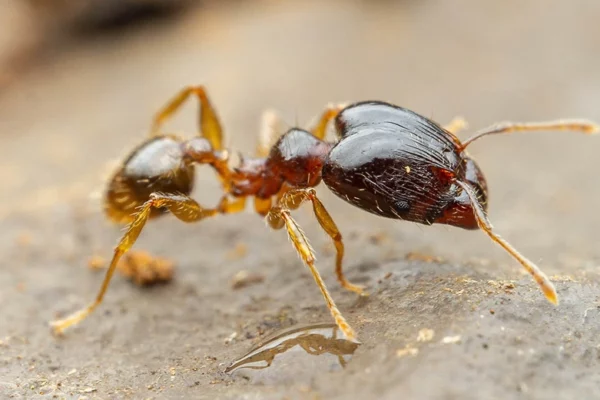
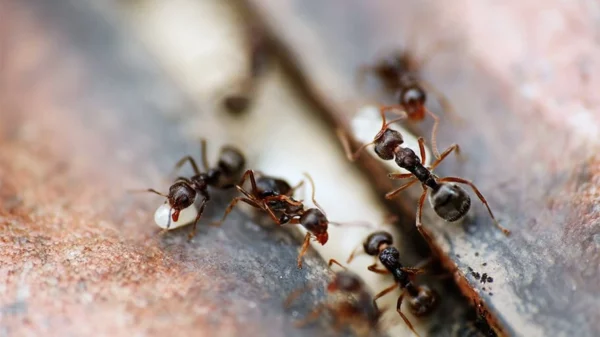
Black House Ants
Fire Ants
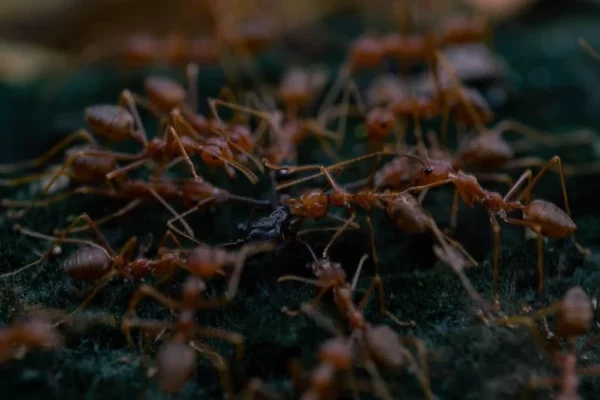
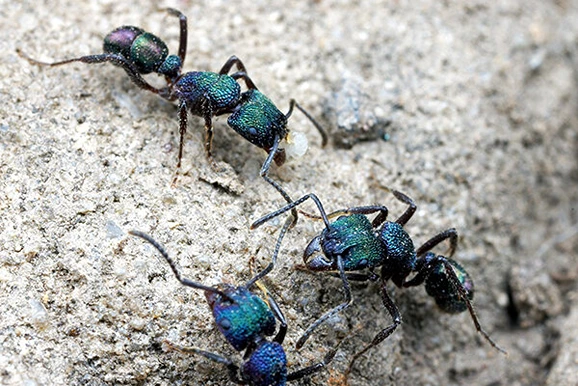
Green-Headed Ants
Understanding which species has invaded your property helps us tailor our treatment approach for lasting results. Whether you’re dealing with a minor nuisance or a widespread infestation, our expert team in Ipswich is equipped to handle it.
Ants in Your Home: Common Problems
Ant infestations cause more than just an inconvenience. They lead to problems that can affect your health and property. Some common issues caused by ants include:
Food Contamination
Food Contamination
Structural Damage
Structural Damage
Painful Bites and Stings
Painful Bites and Stings
Unsightly Trails and Mounds
Unsightly Trails and Mounds
Effective Ant Control Treatment in Ipswich
Eliminating ants requires more than just a temporary solution. Our professional pest control in Ipswich takes a comprehensive approach to target the problem at its source. We offer treatments designed to eliminate ants and prevent their return.
Inspection
We begin by thoroughly inspecting your property to identify the ant species, locate nests, and find entry points. This allows us to develop a treatment plan that addresses the root cause of the infestation.


Baiting
Once the infestation is identified, we use specially formulated bait that ants carry back to their colony. This eliminates the ants at their source, providing a more permanent solution than surface treatments alone.
Dusting
For more severe infestations, insecticidal dust is applied in roof voids, subfloors, and wall cavities. This treatment targets hidden nests and ensures that even hard-to-reach colonies are eliminated.
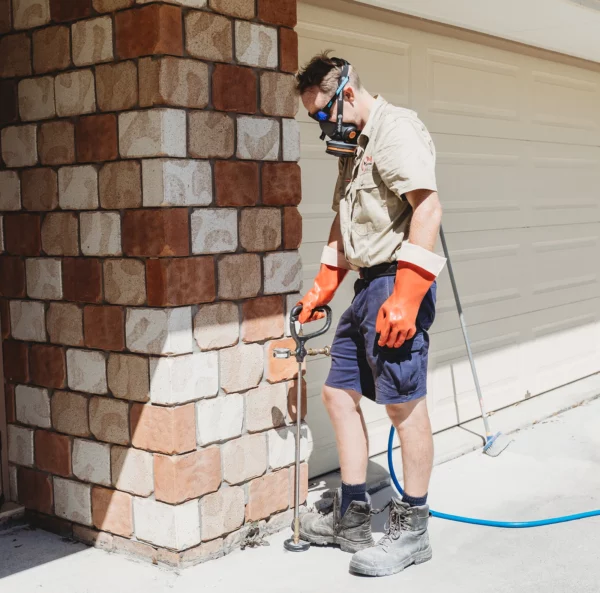

Surface Sprays
We apply surface sprays around entry points, along building perimeters, and in areas where ants are actively foraging. These targeted treatments provide long-lasting protection and deter future infestations.
While ants in outdoor environments cannot be fully eradicated due to weather and natural conditions, our treatments significantly reduce their numbers and prevent them from entering your home.
Seeing an ant or two may not raise immediate concern, but an increase in their numbers could signal an infestation. Watch for these signs to identify the problem early:
- Live ants – If you notice a sudden increase in ants indoors, especially in kitchens or bathrooms, it’s likely that you’re dealing with an infestation.
- Ant trails – Ants leave pheromone trails for others to follow. These trails are usually visible, particularly in areas where ants are looking for food.
- Ant nests – Outdoor nests often appear as small dirt mounds, while indoor nests can be harder to find but may be hidden in walls, under floors, or behind appliances.
- Dead ants – Finding dead ants near food sources, windows, or doors can be a sign that a larger colony is nearby.
- Winged ants – Swarming ants, often mistaken for termites, indicate that a mature colony is ready to expand.
If you notice any of these signs, it’s essential to act quickly. Professional pest control in Ipswich can stop the infestation before it worsens
There are several steps you can take to make your home less inviting to ants and reduce the risk of an infestation. Here are some practical prevention tips:
- Keep food sealed – Store food in airtight containers, particularly in the kitchen and pantry. Ants are attracted to food sources, so sealing food and cleaning up spills promptly can help deter them.
- Dispose of garbage regularly – Ants are often drawn to trash. Make sure to seal garbage bins tightly and empty them frequently to avoid attracting ants.
- Reduce moisture – Ants are attracted to moisture. Fix leaking taps, pipes, and other water sources that create a humid environment. Make sure to dry out areas like basements, kitchens, and bathrooms that may collect water.
- Seal entry points – Ants can slip through small cracks and gaps. Inspect doors, windows, and walls for any openings and seal them to prevent ants from getting inside.
Ant infestations can quickly grow out of control, and DIY methods often only provide short-term relief. Our expert pest control in Ipswich delivers targeted treatments designed to eliminate ants and prevent future infestations.
With the right approach and the necessary tools, we can handle any infestation, large or small.
Don’t let ants take over your home. Contact our Ipswich pest control experts today for a free consultation!








